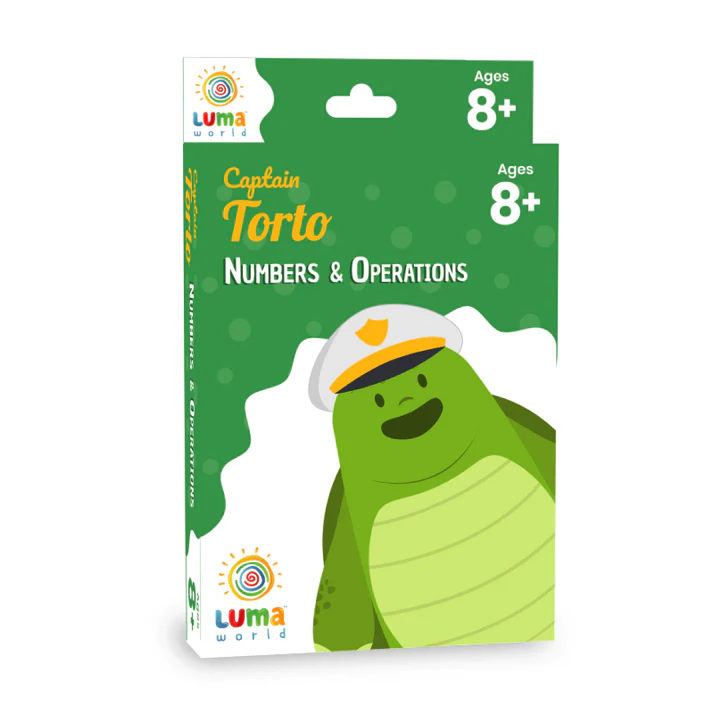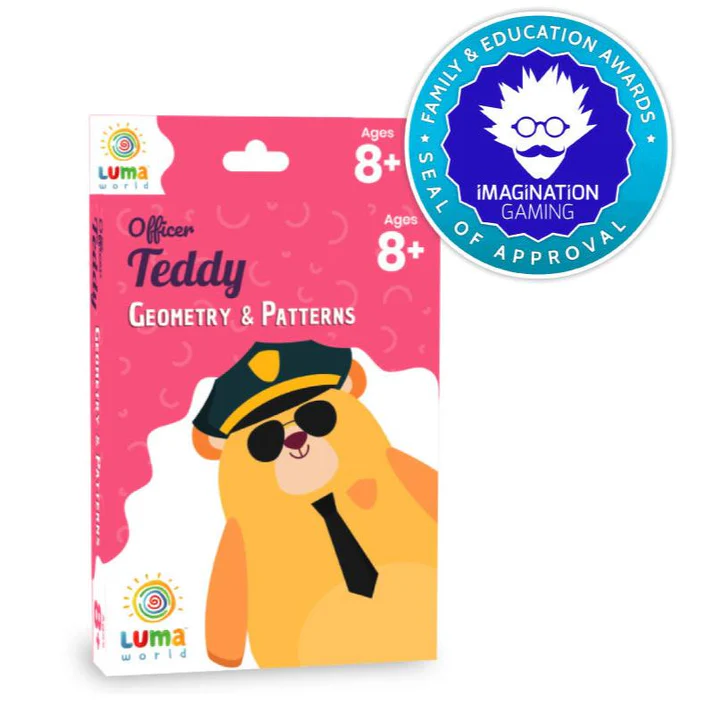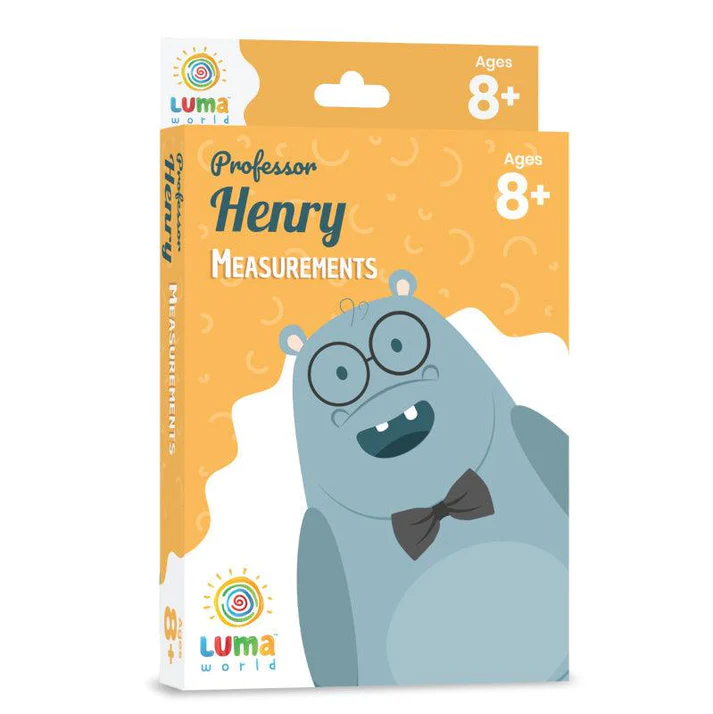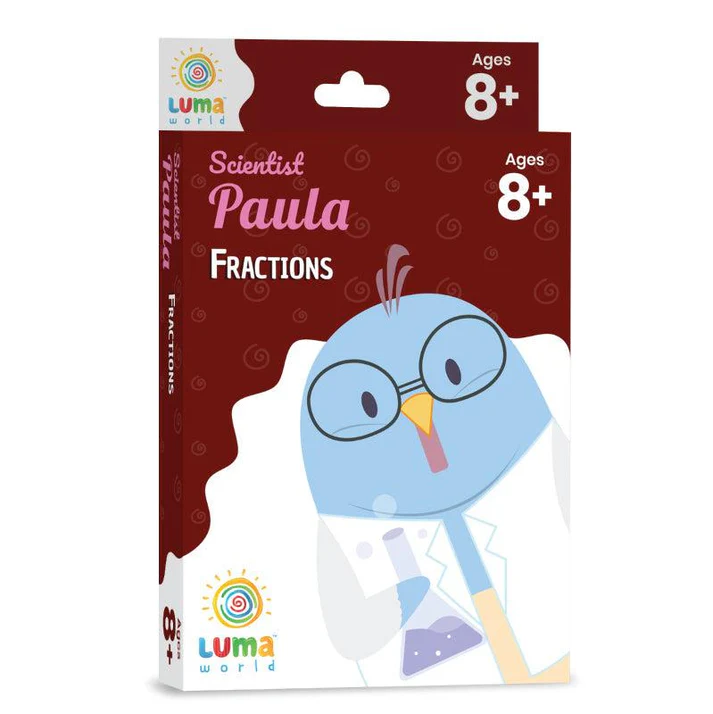4 Fun Math Concepts Little Ones Can Learn Through Board Games
Zeba ParkarShare
If you've ever attempted to teach math to young children, you know that sometimes it's like pulling teeth. Worksheets? Yawn. Lectures? Snooze fest. But what if there were a way to sneak math learning in when your child is laughing, thinking, and pleading for "one more round"?
That's where board games and entertaining math board games step in.
Today, we're exploring four cool math concepts—operations, geometry and patterns, measurements, and fractions—that children can learn organically through some of the best math board games and learning games.
Spoiler alert: You'll find awesome math board games, brain-boosting critical thinking games, and entertaining ways to develop solid skills without a single groan. Let's roll!
Why Board Games Are a Brilliant Way to Teach Math
Here's a little secret: younger children learn better when they have fun.
When a kid plays a silly game, their brain gets lit up, learning new things without even knowing it. It's like adding veggies to a brownie — only much more fun!
Math board games combine giggles, competition, and a dash of strategy to improve fine motor skills, mental math, and number recognition all at the same time.
Rather than tedious flashcards or memorization, your child is immersed in a narrative where the solution to math problems results in treasure, triumph, or a laugh-out-loud surprise.
And the bonus? Children beg to play again. No bribery required.
Building Critical Thinking Skills Through Play
When children immerse themselves in playing math board games, they're exercising more than their mental muscles. They're solving problems, making choices, planning ahead, and coming up with clever strategies to gain points. And what is more, they're utilising their favorite math board games in the process.
Each roll of the dice, every draw of the card, and every game board move requires critical thinking ability. Children must compare choices, foresee consequences, and frequently collaborate in cooperative play.
These fleeting instances of choice and planning pay dividends in problem-solving skills well into the future, not merely in mathematics study, but also in life. And let's get real: seeing your child beat you at an awesome game is secretly one of the best sensations as a parent!
Concept #1: Mastering Operations
Before children can solve complex math problems, they must have a solid foundation in simple arithmetic — addition, subtraction, multiplication, and division.
But endless worksheets? No way. Not gonna happen.
Instead, engaging board games ride to the rescue, assisting young students in developing math fluency while having fun.
One ideal tool? Captain Torto Flashcards – Numbers and Operations (Age 8+)

These vibrant, interactive flashcards are compatible with all education boards and are geared to assist 3rd graders in learning math about numbers, operations, money, and patterns. Children can rediscover the joys of math games by trying out these great educational games. They're perfect for use in the home, when away, or even during study hall time. Overall, a great game and an even greater resource for learning basic arithmetic.
Other favorite math games for Operations:
-
Sum Swamp: This dice game turns simple addition and subtraction into a swampy adventure full of silly detours and fun obstacles. It’s a huge hit among younger kids.
-
Math Whiz: Think of it like an arcade-style card game that drills math facts while keeping the energy high and competitive.
-
Math Dice Jr.: Roll the dice, and then find creative equations to hit a target number. It’s brilliant for building early number sense and mental math skills.
And for the older kids and fifth graders looking for a real challenge?
Prime Climb is a colourful, strategic math board game that turns prime numbers and operations into a fast-paced race to the finish!
Concept #2: Exploring Geometry and Patterns
Spotting shapes, building patterns, and seeing the Math world differently
Geometry is not simply about shapes — it's about the way we perceive the world. And pattern recognition? That's the secret tool of the brain for anything from reading to coding!
When younger children play entertaining board games that delve into geometry and patterns, they build their visual vocabulary and logical thinking abilities that they'll be using for years to come.
An amazing resource:
Officer Teddy Flashcards – Geometry and Patterns Concepts (Age 8+)

These flashcards are carefully designed to match 3rd-grade curriculum standards and use a colourful mix of challenges, hidden clues, and clever puzzles.
Kids get to engage deeply while hunting for answers. Perfect to engage kids in a more fun way than a forceful study session that involves tears and resentment on the child's part!
Other great math board games for Geometry and Patterns:
-
Tiny Polka Dot: Bursting with color and energy, this fun game boosts both pattern recognition and number recognition skills.
-
Pattern Play: Kids recreate stunning designs using brightly colored blocks — a great way to encourage fine motor skills and spatial reasoning.
-
Dino Math Tracks: Yes, our favorite dinosaur-themed game is back! It cleverly ties place value, geometry, and pattern recognition into one engaging game.
And don’t miss Set — the ultimate classic game for spotting patterns, building fast-thinking skills, helping with word recognition and sharpening your kid’s eye for detail.
Concept #3: Understanding Measurements
From time to money: Measurement made fun
Measurements aren't a "math thing" — they're a life skill.
Time management, budgeting money, recipes to cook — it's all about learning units and amounts. But once more, why use dull worksheets when there are enjoyable methods to educate children about measurements?
One tool we love:
Professor Henry Flashcards – Measurements (Age 8+)

Designed for Grade 3, these bright, exciting flashcards cover everything from length, volume, and time to money and units of measure. Kids up to fifth grade can enjoy engaging in revisiting their concepts.
Kids play, explore, and discover — practising real-world concepts with this board game without even realising it!
Other great math board games for learning measurements:
-
Money Bags: A hands-on learning resources game where kids earn, trade, and budget their way to victory — perfect for building early financial literacy.
-
Learning Resources’ Time Activity Set: This learning resource game offers multiple activities for telling time using engaging, colourful clocks.
And yes, Dino Math Tracks makes another appearance here too, helping kids love learning about distances and comparative measurements in a dinosaur-themed race!
Concept #4: Fractions Are Fun with the Right Games
Learning parts of a whole through play
Oh, fractions — one of the first areas that most children become bogged down in learning about mathematics.
But believe me: fractions learning does not necessarily equate to frustration and tears. With the appropriate math materials and fun board games, learning parts of a whole can indeed be thrilling!
One of the ways I really like to incorporate fractions into the lives of kids without making it seem like a challenge is by the use of flashcards. It can feel like a cooperative game environment and helps them come together to learn important concepts that help their mental calculations later in life. One of my favorites is:
Scientist Paula Flashcards – Fractions (Age 8+)

Aligned with all educational standards, these playful flashcards use multi-format challenges and the Magic Glass to make fraction learning feel like a hidden treasure hunt.
Perfect for practicing mathematical concepts anywhere — at home, school, or on road trips!
Other awesome games for Fractions:
-
Pizza Fraction Fun Game: Kids slice, serve, and build fractions while pretending to run their own pizza shop. A delicious way to improve math skills!
-
Math Bingo: Fractions Edition: Classic math bingo, but with a fraction twist — making learning quick, competitive, and full of laughs.
-
Fraction War: A card game that's simple, strategic, and perfect for reinforcing fraction concepts in a friendly competition.
Choosing the Best Math Board Games for Your Child
Finding the Right Game for the Right Age
Selecting the top math board games is not merely about taking something off the shelf. You desire an entertaining game that aligns with your child's existing skills, interests, and developmental stage. For younger children, use only goofy adventures such as Sum Swamp or Tiny Polka Dot.
For older children and fifth graders, lean into more advanced strategy games such as Prime Clump that combine prime numbers and operations in an innovative way.
Look for games with several levels of play — ones that expand with your child's skills. That way, the same favorite mathematics board games can remain for learning and fun.
Mixing It Up: Multiple Games for Maximum Learning
Like turning books on a shelf, turn several games throughout the school year.
-
Fall can emphasise money bags and resource management games.
-
Winter may be for geometric puzzles and pattern recognition.
-
Spring may introduce fractions and place value games.
Shaking things up makes learning math fun and avoids burnout. Plus, you’ll cover a broad range of math concepts without it ever feeling repetitive.
Making Math Fun All Year Long
Setting Up a Family Math Game Night
Why not create a weekly tradition around it?
Family Math game night is the perfect way to make math fun without it feeling like homework.
Pull out Money Bags, Tiny Polka Dot, Math Dice Jr., or even a classic game like Monopoly.
(Hello, resource management, budgeting, and basic addition practice!)
Add some snacks, simple prizes, and lots of laughter.
Your kids won’t even realize how much mental math and problem-solving they’re sneaking in while competing to score points!
Math Fun Beyond Board Games
While fun board games are amazing, don’t forget about easy DIY ideas like:
-
Dice roll math challenges
-
Printable math bingo games
-
Flashcard treasure hunts
-
Homemade fraction pizza crafts
There are endless fun ways to teach kids that learning isn’t confined to a worksheet. Remember, there are multiple levels to growth and learning, and all you can do is trust the process and guide your child through what's best for them!
Final Thoughts: Play Your Way to Math Mastery
Math doesn't need to be war. It needn't be groans, tears, and endless worksheets.
When you use the very best math board games, a set of vibrant-colored flashcards, and some creative thinking, you make math education a delightful, thrilling journey — one that your child will look forward to.
The reality is, the math principles children learn through these enjoyable games are not only good for acing their math grades — they form the basis of life skills they will retain forever.
From learning to compute quickly when shopping at a store, recognizing patterns when solving everyday situations, to employing measurement abilities while cooking or constructing, a robust math skill set is ingrained into everyday life.
When children learn and play exciting math board games, they tend to become increasingly self-assured with mental mathematics.
They learn adding, subtracting, and answering questions without worry because the stress is off — it's simply a part of the game! With time, this establishes a degree of velocity and comfort that conventional approaches are usually not able to produce.
A child who was initially reluctant to say 37 + 46 aloud will suddenly begin tossing out answers enthusiastically, thanks to game time-tempered number sense.
And it is not merely speed.
The top board games help solidify sound, enduring mathematical ideas deep into a child's mind.
Rather than memorise discrete facts, children grasp numbers, patterns, measurements, fractions, and more. They experience math as living and playful, not cold and perplexing.
When a child plays Sum Swamp, Tiny Polka Dot, Prime Climb, or plays an excellent learning resource game such as Money Bags, they are not merely killing time. They are creating patterns in their brains that will make more complicated math ideas simpler to grasp later. They're conditioning their brains for flexibility, logic, critical thinking, and problem-solving — all of which are necessary skills to succeed in the future, both academically and far beyond.
Go on — pull out a game board, some dice, and submerge in the wonder of mathematics through fun!
You'll be surprised at how much quicker your young student is learning key skills, how confident they become with math, and how they begin to see themselves not only as a person who "does math" — but as someone who adores it.
Turn math time into game time! Toadbird Games makes learning operations, geometry, measurement, and fractions exciting for young minds.